“Did you like the mountains after growing up in the prairies?”
(50:30) Oh, I loved the mountains. We are back in Armstrong (so) we are back in the mountains.
(50:52) So there is one incident in Kootenay that really comes to mind and it involves Roger Eddie who is now living in Revelstoke. Roger was a graduate, I think of Missoula, Montana. He started with us and he was there one winter and we decided to snowshoe up to Floe Lake. Well, I had been there several times before on horseback and hiked, 6.2 miles…and the last half mile was all switchbacks. We probably waited until there was more snow on the ground than ever and we trudged along all day long and got to the top of those switchbacks and it was starting to get dark. We went a little bit further than where the trees ended and the clearing started where the cabin was. But I looked around and I couldn’t see the cabin. I snowshoed a little bit further and I couldn’t see the cabin. It was getting darker and darker and colder and colder. Of course, we didn’t have a tent or anything like that, we were counting on that cabin being there and never thought for a minute that it wouldn’t be. I got a little excited and started snowshoeing down towards the lake and no cabin. I looked back over my left shoulder where the trees ended on the shore and I knew the cabin was past there because it was in the open. I looked a little bit further past where the cabin is supposed to be to another bunch of trees and said, “Okay, the cabin should be about half way between those two points.” It is not there! I walked a little further, couldn’t find the cabin, snowshoed a little further and Roger is getting really upset by this time and really scared. He says, “Keesey, you better find that cabin pretty quick! Are you sure there is a cabin here?” Of course I had been there several times, I knew there was a cabin. I said, “Roger, you have to believe me, there used to be a cabin here. I don’t know what has happened to it.” I snowshoed a little further and the light was just right that I saw a little hump in the snow and a little bit of a shadow and I snowshoed over to it. I dug down about two feet and found the rock that was on top of the board that was on top of the chimney of the cabin! I hadn’t dreamt there’d be that much snow in that country because I had never been in the high country in the winter up until that point. So we went around it and of course those cabins were all the same, they had the verandahs on the front. We snowshoed around the front and we looked down into the verandah through a little triangular hole in the snow. We dug and dug and dug, took our snowshoes off and used them to dig a little bit. We walked down on the verandah which was completely swept of snow, completely cleared of snow. There wasn’t a bit of snow on that verandah! We went into the cabin and spent the night. We dug some of the frozen food out of the cellar and disposed of some that wasn’t any good. We noticed when we got there, that the mice had got into the oats that we always tied in a gunny sack to the ceiling from the rafters, so that the mice couldn’t at it…the bag of oats was for the horses when we got there. The mice had gotten into it and there were oats all over the floor, all over everything. So we cleaned that up and ended up going to sleep…We set a trapline actually before we went to bed and as we were trying to go to sleep we kept hearing, SNAP, SNAP, SNAP! With each couple of snaps we would get up and throw the mice out the door and set them again. Finally, I was just about to sleep and I let out a scream, probably the first time I ever screamed in my life! Roger said, “What the hell is going on?” I said, “I was just dreaming there was a mouse crawling on my head and I realized there was one on my head!” I didn’t sleep the rest of the night…
(55:57) My other interesting story is about horses. For someone who didn’t know much about horses and I never did become a real horseman when I was in Kootenay…the Chief Warden one day called me up and said he wanted me to go up to Floe Lake to retrieve a couple of horses that the Superintendent, I won’t mention any names, had lost up at Floe Lake. The Superintendent had taken a friend with a wooden leg up on horseback to Floe cabin and when he got there he realized that he had forgotten the bells and hobbles, so he made makeshift hobbles and hobbled one horse. He took a couple of the rings out of the old wood fireplace on the front step of Floe cabin and some wire and made a makeshift bell for the other horse. When they got up in the morning, the horses were gone. The Superintendent looked and looked and he couldn’t find the horses, so they had to walk back to the highway. The Chief Warden called me up, he said, “I want you to go get those horses.” He just had a gleam in his eye. I thought, “Why is he asking me? I am not the horseman around here.” I took the challenge, I took my saddle horse Misty and went up to Floe Lake. As soon as I got into the clearing where the cabin was, there are the horses right near the cabin just standing there waiting for me! So I tailed them and went down to Hawk Creek with the horses and called somebody to get a trailer. I phoned the Chief Warden up (and) very, very casually; as if it was a piece of cake, part of my everyday duties; I said, “I got your horses for you!” It is one of my favorite stories, because I wasn’t a horseman at all!
“Did you have to deal with many bad accidents on that highway in Kootenay?”
(58:14) Actually no. I don’t recall any bad accidents…
(58:31) I have one story about Pukaskwa that I want to relate. We had a 32 foot fiberglass patrol vessel, that used to be an RCMP patrol vessel in the Saint Lawrence River. It had twin engines, it had 350 cubic inch Chevy engines, a bit of a pig and a workhorse with a wheelhouse. We used that to patrol and to haul people and supplies up and down Lake Superior. That boat was repowered with Volvo Penta engines. After Larry Harbidge became Chief Warden, they had decided to repower the vessel. They sent it to Thunder Bay and took the other engines out and repowered it. A while later we had a mechanic working on the engines…just before we were about to take the Sarah P, (which was the name of the vessel, after Sarah Pukaskwa, who the Pukaskwa River and the Pukaskwa Park was named after). We were taking the Sarah P down to Sault Ste. Marie which was a three or four day trip to be refitted with something else and I was training a new boatman. The ironic thing about me training a new boatman (was I had limited experience with large vessels on rough water). As I mentioned before, I think there were a lot of times in hindsight that we shouldn’t have been out on the lake. There should have been someone with more experience than me (doing the training) but just before we left there was a problem with the engines and they weren’t running very well. Another mechanic worked on it and they called me to go down to the mouth of the Pipe River where the vessel was. He took me through the engines and how they worked and he said, “There is something I have to tell you before you leave tomorrow because this could leave you stranded.” He said, “The last guy put silicone in the fuel lines, the diesel lines.” And you can’t do that because the diesel gets into the fuel and it clogs up the filters and the engines don’t run. “So if that ever happens Greg, here’s what you do.” And he ran me through step by step as to how to do that. I was training Jim Tierney who is the husband of Karen Tierney, who just actually I believe, finished up as Superintendent of Revelstoke. We were down past the mouth of the Pukaskwa River on our way over to the east side of Lake Superior. I think the waves were somewhere about 15 feet high, 15 to 20 feet high. Coincidently enough, both of the engines failed within about 10 minutes of each other. So just as if I knew what I was doing, calm and collectively I said to Jim, “Get down to the port engine hatch and open it and secure it. Go down in by the engine and do this and this and this and when you have done that give me the thumbs up and stand out of the way because I am going to turn on the engine.” He did that, he went down and he opened up the port hatch and he got down by the engine and did all the things I asked him to. He gave me the thumbs up and got out of the way. I turned the key and the engine sprang to life! I thought, “Oh my god! This isn’t supposed to happen to me. This is my lucky day!” I pointed over to the other engines, so he sealed the hatch and he went over to the starboard side and did the same thing. He gave me the thumbs up and got out of the way. I turned the key and the engine sprung to life and that was the last time they stopped! We went to Sault Ste. Marie and a while later we were on our way back. We got back home, no problems. I don’t know when it was, but shortly after that incident happened he said, “How the hell did you do that?” I never did tell him that I was flying by the seat of my pants! I just played cool and to this day I think he figures I actually really knew what I was doing. We took one of the steel 40 foot tugs that the maintenance people had, I think it was the next year and the engine quit as well. We managed to use radar and sonar and the new Loran-C system and went through a hole in the rocks in a harbor in Michipicoten Harbor in the middle of the night and managed to get the boat in and back out again. That was another time we were flying by the seat of our pants.
(1:04:04) I think the last thing that I am going to talk about, unless you have any more questions, is you asked about lasting memories and one of the greatest of all that I will never forget about is the Pointe Peele Smelt run. Back in the mid 1970s after I moved to Pukaskwa, every year when the smelt ran in provincial waters up on the Parks Canada shores at Point Pelee National Park there were real enforcement and public safety concerns. They parachuted wardens from all over the country in to help with law enforcement and public safety, mostly law enforcement. The drinking was just ferocious! They would catch all the fish they could, all night long until one in the morning when they had to be out of the park. If they couldn’t carry the fish in the big plastic bags they would leave them so there were littering problems and that sort of thing. I think I was there two years, possibly three years and I have to say that I think most of the friendships I made with other people, other than at the Palisades or on other training courses had to be at Point Pelee. For anybody else who was at Point Pelee, they know what I am talking about and if any of you guys are reading this interview don’t get excited, I know that I am not allowed to talk about it. What happened at Leamington stays there! Christine, I am sorry I am not going to say anything about Point Pelee, it was wonderful, but I do have to say I think alcohol was involved. Not when we were working, but after! That is the only thing I will say about Point Pelee!
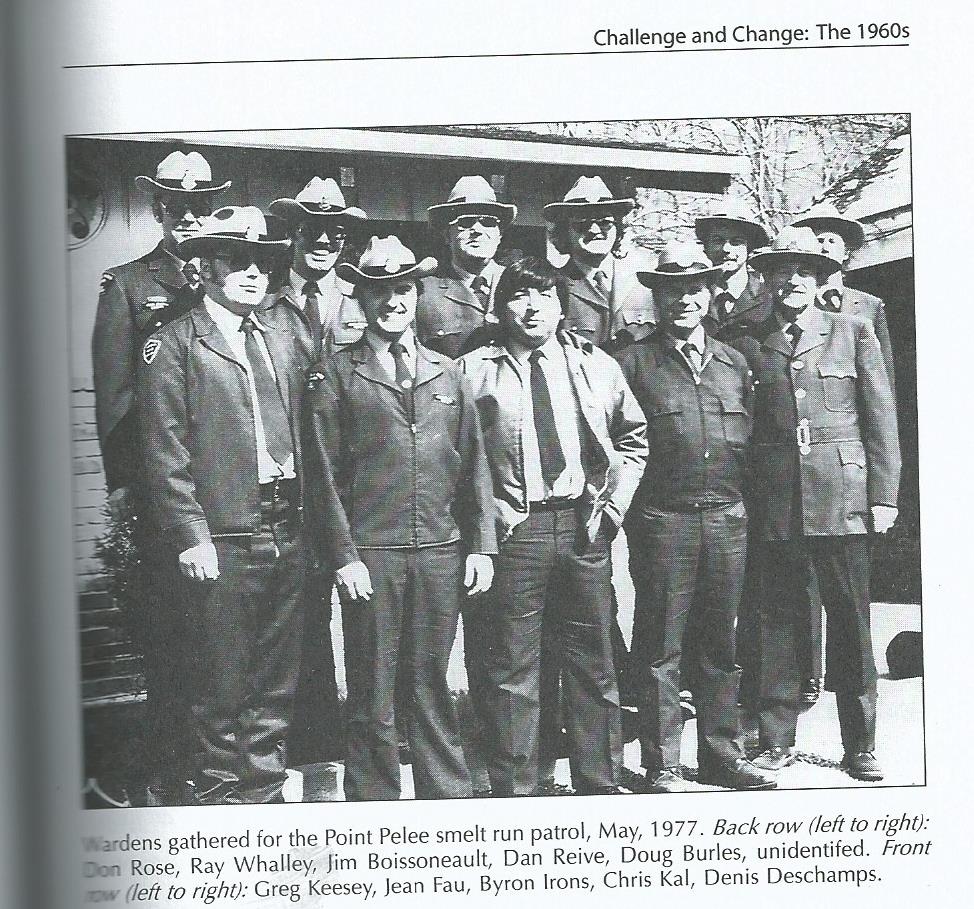
Burns, R.J. and Schintz M. Guardians of the Wild (Calgary: University of Calgary Press, 2000), 271
(1:06:21) That was taken at Point Pelee.
(1:06:43) What book is this? Oh, Mike Schintz. We were on one of the boats on Lake Superior, near the lighthouse one day, way down the shoreline and we had the local patrolman, the native patrolman with us, a couple of them. We pulled up alongside this (big boat). Before the park was a park, a fair number of these big three and four story vessels would go up Lake Superior. Some of them would stay in Old Dave’s Harbor and some in Otter Cove. And we pulled up alongside one, one day and Mike Schintz was with us and somebody yelled down from about the second deck up, “Where can I find some fish?” And Mike looked over his shoulder and looked up at the guy and said, “In the water!” Then he looked over at Lester Star who was our patrolman operating the boat and said, “Let’s get the hell out of here!”
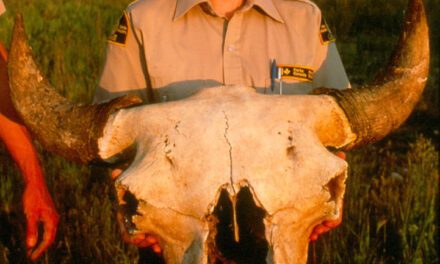
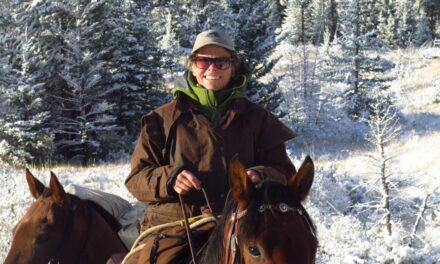
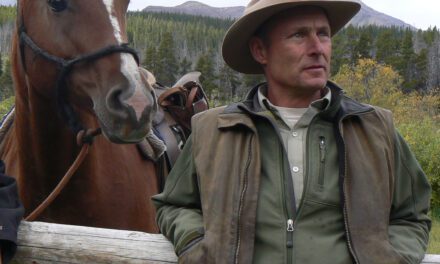
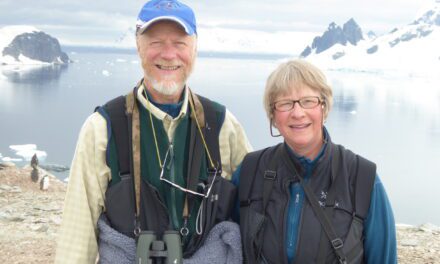
Hi Folks,
I loved this article. I grew up in Unity with Greg Keesey
Reading this article really tugged at my heart strings
I live in Toronto now where I have been since 1972
Please say Hello to Greg for me.
Cheers,
Rick Tufts